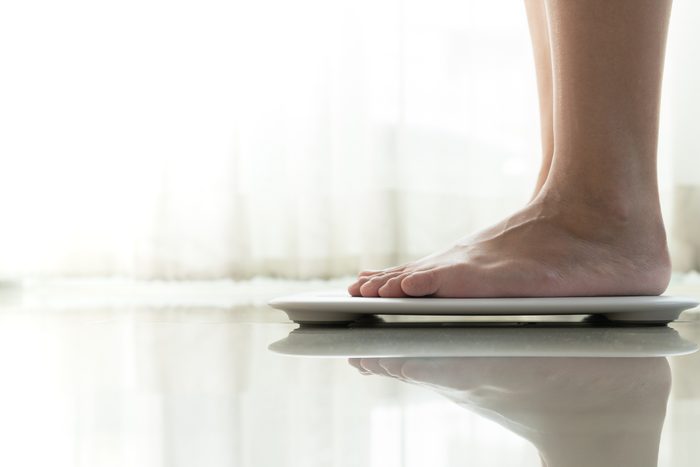
What’s the best kind of birth control for me?
Choosing a type of birth control could take some trial and error. In fact, your current form of birth control might not be the best one for you. Here are some signs that you might want to change your form of contraception.

It’s a mess when you use the bathroom
Irregular bleeding, excessive flow, and spotting are the most commonly reported side effects of all types of birth control, including pills, patches, shots, and IUDs, says Sherry Ross, MD, an ob-gyn at Providence Saint John’s Health Center in Santa Monica, California. However, these side effects should only last a few months after starting a new method. If you’re still bleeding after two to three months (and it’s not getting lighter), you need to have a conversation with your doctor. Note that the copper IUD (ParaGard) is the birth control method most likely to increase your flow and period frequency.

Everything makes you sick to your stomach
Many women experience nausea during pregnancy, so it seems unfair that the methods used to prevent pregnancy also can have the same effect. Yet nausea is quite common because of the way synthetic hormones work in different women, Dr. Ross says. “For those women who have nausea from the birth control pill, it’s best to start with the lowest dose of hormones and take the pill before bedtime,” she advises. If that doesn’t work, she suggests switching to birth control methods like a progesterone-only IUD or the vaginal ring which bypasses the stomach altogether and thereby minimizes gastrointestinal distress.

Memory? What memory?
If you find yourself more spacey than usual, it might be your birth control. Researchers from the University of California, Irvine, found that women on the pill had a better emotional recall of events but had a harder time remembering details than women who were not on hormonal contraception. The researchers chalk it up to the influx of hormones, saying it mimics the confusion or forgetfulness many women complain of when gestating. (Learn more about the contraception myths that could put your health at risk.)

You’re overweight or obese
“It’s been well-known for many years that hormonal birth control pills don’t work as well for women with higher weights,” explains Robert Grossman, MD, an ob-gyn at Las Robles Hospital in California. “Unfortunately, the reality is most doctors don’t discuss this with their patients. It’s a very uncomfortable conversation to have,” he says. Grossman adds that the lack of other options—you’re left with non-hormonal IUDs or surgery—may make it hard for doctors to offer different methods for overweight patients. But if you’re overweight, it’s a conversation you need to have with your doctor.

Everyday life feels like an emotional roller coaster
A little PMS is normal; turning into an emotional wreck all month long is not. And unfortunately for some women, the hormones in some birth control pills, patches, and IUDs can exacerbate this effect, Dr. Ross says. Fortunately, there are certain pills designed to help stabilize your mood swings. But, she adds, it all depends on how sensitive you are to synthetic estrogen and progesterone, the man-made hormones used in almost all types of birth control. If you try several different brands of birth control pills and still feel intense bouts of anger, anxiety, sadness, or depression, it’s time to consider another type of contraception, preferably a non-hormonal option like the copper IUD, Dr. Ross says.

Chronic headaches are taking over your life
Chronic headaches, including some types of migraines, have been linked to hormonal fluctuations in women. Birth control pills may worsen or even cause them. “There are many different brands [of birth control pills], each varying in the types and doses of key hormones and some women are just more sensitive to one or both of these hormones exacerbating this effect,” Dr. Ross says. This means you may need to experiment to figure out which hormone combinations help or hurt your head.

Weight gain is a concern
It’s a myth that birth control pills make women gain weight, but there is one type of birth control that has been shown to make you put on a few: the Depo-Provera shot. “I find that most women gain approximately five pounds with Depo,” says Alyssa Dweck, MD, an ob-gyn and co-author of V is for Vagina, “however, this isn’t universal.” A study in the Journal of Pediatric & Adolescent Gynecology revealed that one factor contributing to weight gain from the shot is the quality of your diet: Researchers found that adolescent women who ate a lot of fruits, veggies, and whole grains were less likely to gain weight after getting the shot, even if they ate junk food as well.

Tummy bloat is your middle name
Feeling like you’re four months pregnant when you’re definitely not isn’t pleasant, so it’s no surprise that this is the birth control side effect women say they hate the most. This is not all in your head, as birth control pills can increase the risk of gastrointestinal symptoms. Researchers found that women on the pill were more likely to experience bloating and constipation as well as irritable bowel disease and Crohn’s disease. But bloating on the pill should be mild and not last the whole month, Dr. Ross says. So if you feel like it’s a perpetual problem, talk to your doctor about other options for birth control.

You have chronic yeast infections
“Diaphragms and [contraceptive] sponges can cause frequent yeast and bacterial infections so I don’t recommend them as your primary birth control,” Dr. Ross explains. In addition, other birth control options, particularly those that are inserted into your vaginal canal, can alter the delicate bacterial balance, which makes you more susceptible to infection.
Next, check out these other secrets your vagina wishes it could tell you.